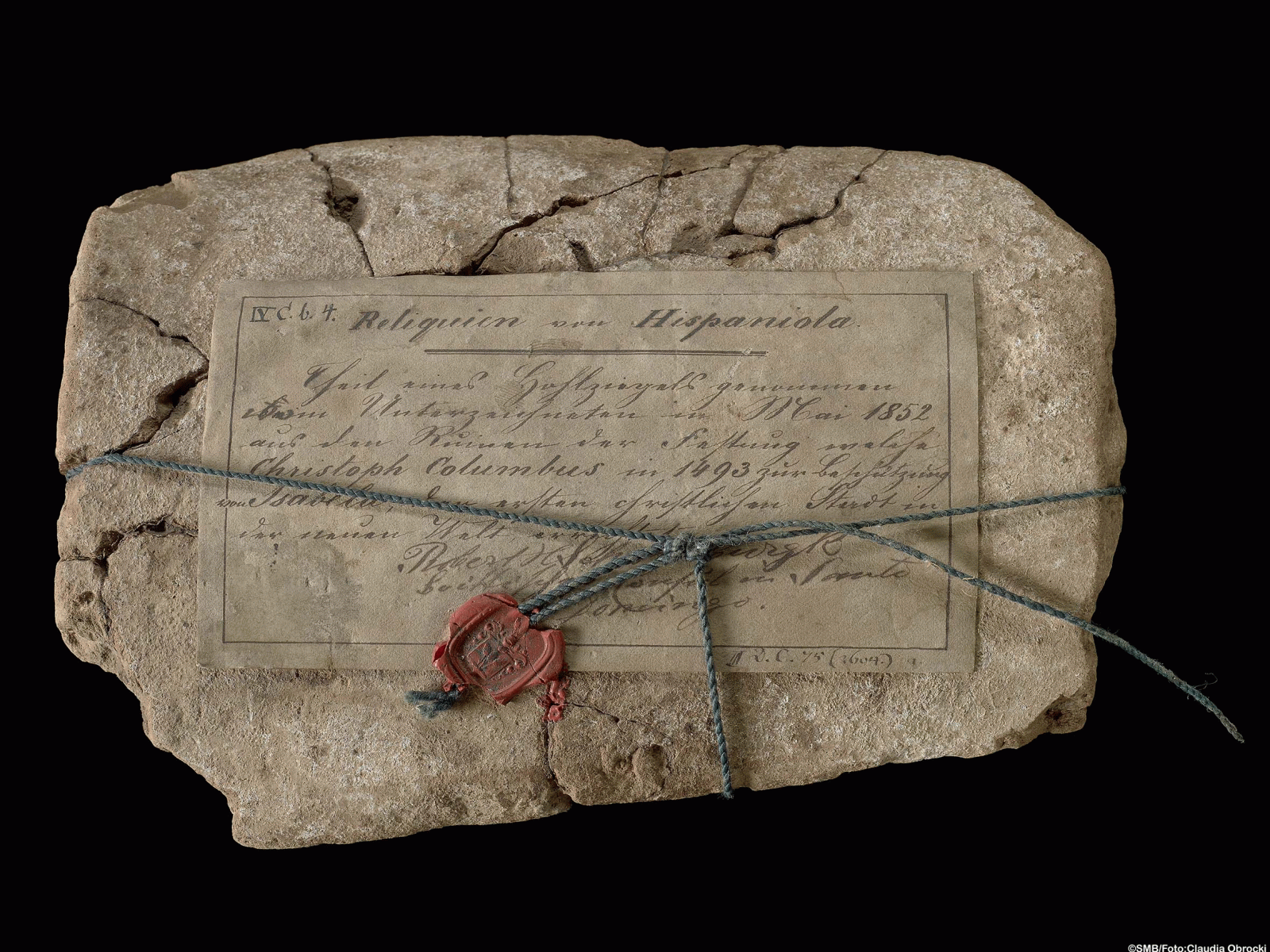4A Lab Seminar
Bat-ami Artzi and Manuela Fischer: Fragments of the Spanish Conquest from the Americas: Relics or Memorials?

Architectonic fragment "Relics from Hispaniola," Photo credits: Claudia Obrocki.

Inca vessel fragments from Vilcabamba. Photo credits: Javier Fonseca Santa Cruz.
The Spanish invasion of the American continent represents a fascinating case study of multiple historical points of views and various methods by which these were documented. This presentation will address a European and a native vision related to this encounter by means of fragments.
The European perspective will be explored by the figure of Robert Schomburgk, consul of Great Britain in the Dominican Republic. In 1852 Schomburgk made a trip to the island's hinterland in order to visit the ruins of the first Spanish buildings in the Americas. At the first glimpse the samples are unimpressive building material, but labeling, signature and seals added by the collector converted them to "Relics from Hispaniola," thus worth to be sent to the "Kunstkammer" of the Prussian king in Berlin. Schomburgk sent a similar collection to London, now hosted in the British Museum. The different labeling of the British samples as "Memorials from Hispaniola" might be understood taking into account the biography of the collector and the different national contexts.
The second case, of a native vision, will be examined through ceramic fragments of an Inca vessel whose iconography describes confrontation between the Spaniards and the indigenous population. These fragments were found in an archaeological excavation carried out by the Peruvian Ministry of Culture of Cuzco at the site of Vilcabamba La Vieja, the Inca last refuge. The piece was decorated with a very complex scene that includes 39 human figures and 57 animal images. To all appearances it is the earliest extant description of the encounter between the Europeans and the Andeans depicted from the Andean point of view. The iconographical analysis of the scene reveals that it does not represent a specific belligerent event. Rather, this scene displays an Inca vision of a future in which the indigenous people will gather under the Inca mandate and defeat the Spaniards.
On the basis of these two case studies, Bat-ami Artzi and Manuela Fischer will reflect on the fragments as an aesthetic and scientific component within the European traditions. Furthermore, they will consider the role of fragments as relics or memorials and examine their relation to identity matters both, in the Andean and European societies.
Bat-ami Artzi is a Postdoctoral Fellow of the 4A_Lab program. She holds a Ph.D. of the Hebrew University of Jerusalem and is an Art Historian, Archaeologist, and Curator interested in the art and material culture of ancient and colonial Andean indigenous societies. Her research centers on the material representation of ideas and notions through forms, technologies, materials, and iconographies. For one of her publications she has been awarded the Polonsky Prize for Creativity and Originality in the Humanistic Disciplines (2017).
Manuela Fischer is Curator at Ethnologisches Museum Berlin, responsible for the South American Collections. She earned her PhD at the Lateinamerika-Institut, Freie Universität Berlin. Her research interest is the history of collections in the context of "metahistories." She contributed to edited books related to the history of science: on the founder of the Royal Museum of Ethnology in Berlin, "Adolf Bastian and his Universal Archive of Humanity" (2007); and on the historical collection of photography from Latin America at Ethnologisches Museum in Berlin, "Exploring the Archive" (2015). Other research topics refer to collections gathered in particular historical contexts: about an expedition in the 1930s to Brazil "Von ´Herrenmenschen´ und ´Waldmenschen´" in "Vom Amazonas an die Ostfront" (2011); or reassignments of museum's collections in changing political contexts "Die Skulpturen von San Agustin..." (Baessler-Archiv 65, 2019).
07. Dezember 2020
Online 4A_Lab Seminar
Die Veranstaltung findet online statt.
For KHI-externs: A registration for the Online Seminar can be made via 4a_lab@khi.fi.it
Hinweis
Diese Veranstaltung wird durch Fotografien und/oder Videoaufnahmen dokumentiert. Falls es nicht Ihre Zustimmung findet, dass das Kunsthistorische Institut in Florenz Aufnahmen, auf denen Sie erkennbar abgebildet sein könnten, für die Veranstaltungsdokumentation und Öffentlichkeitsarbeit (z.B. Social Media) verwendet, bitten wir um eine entsprechende Rückmeldung.


